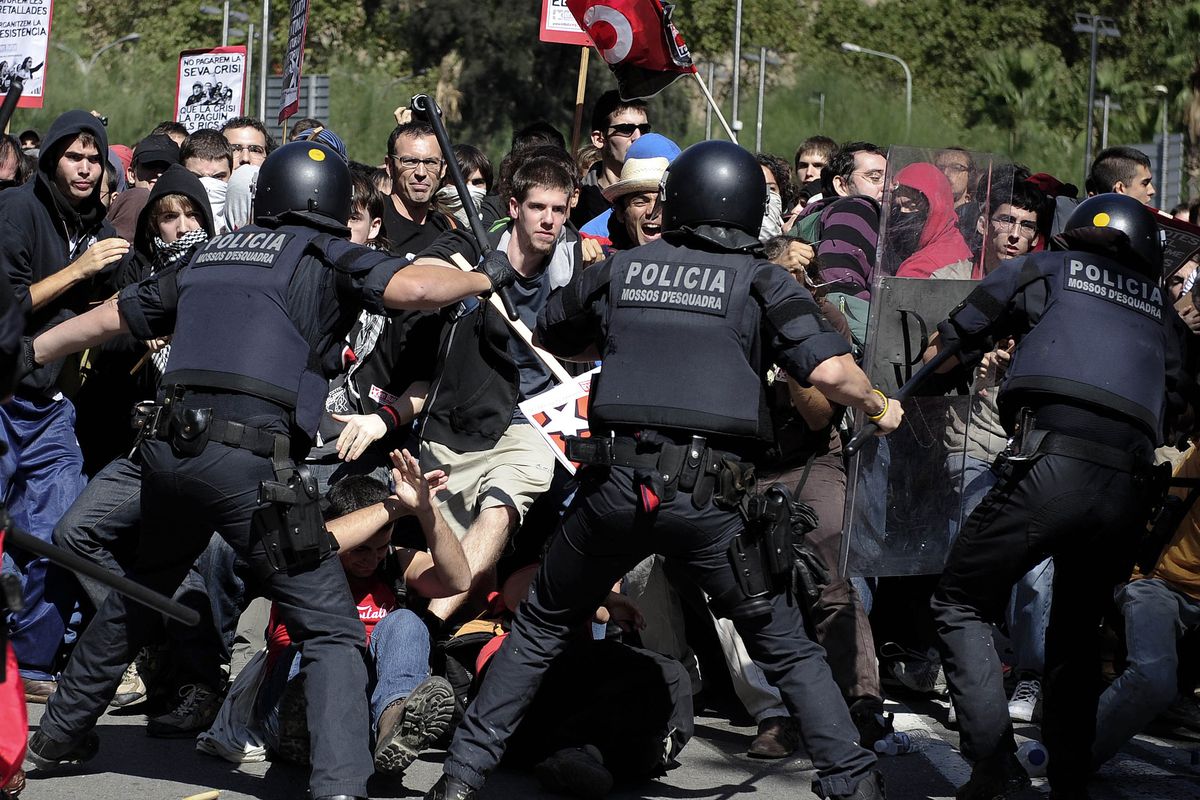Europeans protest austerity measures

BRUSSELS – Tens of thousands of workers marched Wednesday through the streets of Europe, decrying the loss of jobs and benefits they fear will come with stinging austerity measures seeking to contain government debt.
Police fired shots in the air to disperse protesters at a general strike in Spain. Greek bus and trolley drivers walked off the job, joined by doctors who staged a 24-hour strike at state hospitals. Unions claimed a crowd of 100,000 marched on European Union headquarters in Brussels.
From Ireland to Greece, workers united around the theme that they are victims of a debt crisis caused by reckless high-spending bankers undermining Europe’s cherished welfare state. They complained of higher taxes, job cuts, soaring unemployment and smaller pensions.
“We are protesting mainly for our children, because they’re not here – they are out looking for jobs,” said Emilio Martella, a 62-year-old retiree demonstrating in Rome.
Italian public school teachers with temporary contracts didn’t get them extended, and parents have complained that class sizes are getting bigger under the cuts.
Like Italy, many nations are raising, or considering to raise, the pension age, fearing there won’t be any money left to pay retirees in the future.
France’s conservative government is moving through the legislature a controversial plan to increase the retirement age from 65 to 67, which officials say would save nearly $26 billion in 2018 and bring the pension system back into the black that year.
Countries including Greece and Spain have cut workers’ pay, and across the continent governments have trimmed benefits that have long been generous by American standards. Unemployment benefits were cut from four years to two in Denmark, Germany trimmed support for the long-term jobless and new parents who stay home, and Spain and England dropped bonuses to families for having babies.
Waves of demonstrators in bright red, green and blue union jackets marched through Brussels toward EU buildings. Unions estimated the turnout at some 100,000 people, but police spokesman Christian De Coninck put it at 56,000. He said 244 were briefly detained.
The Brussels march came as the EU Commission proposed new penalties to punish member states that have run up deficits, mainly to fund social programs in a time of high unemployment. The proposal, backed by Germany, was running into strong opposition from France, which wants elected politicians, not rigid accounting rules, to decide on what sanctions big spending countries should face.